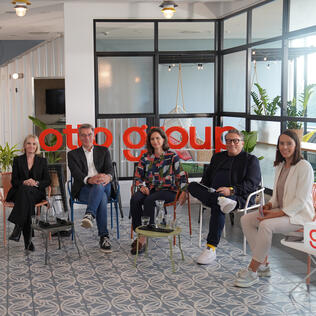of respondents would use repair services in e-commerce.
An end to the throwaway mentality?

This story is part 2 of our series on
Trend Study.
The second part of our trend study series addresses a need that has been growing for a few years: Customers want products that are durable, repairable and reusable. And companies will have to respond if they wish to remain fit for the future and protect their market position.
Nowadays, people shop in different ways. So they consume more and more, buy cheaply and may be willing to accept lower quality in return. The phenomenon of fast fashion is proof of this. At the same time, though, customers are increasingly demanding durable products that stand the test of time and that can be repaired or resold at a later date without a considerable loss in value. Aside from the environment, this is also good for the customer’s wallet – which is currently not as full as it used to be. This need is confirmed by the following figures obtained from the 2022 Trend Study on Ethical Consumption commissioned by the Otto Group:
are in favor of manufacturers offering repair services for appliances and goods, while 62 percent believe that this is the duty of retailers.
demand that manufacturers of new appliances should be able to supply spare parts for ten years.
One in two Germans rates repairability as a positive factor in their purchasing decisions, and 67 percent are guided by product durability.
A fresh mindset for companies
This data points to a new direction in consumption. On average, each German citizen throws away an average of 4.7 kilograms of clothing per year. One million tons of electronic waste needs to be disposed of in Germany each year. But consumers are evidently coming to realize that this tendency to throw away old products and replace them with new ones will eventually hit the wall. Wasting resources in this way inevitably harms the planet. And society’s goal of net-zero emissions will undoubtedly remain unattainable. It is therefore becoming increasingly clear that the age of overconsumption may be nearing its end.
The Otto Group is ready to play its part and help shape the path from a throwaway to a circular society. We are convinced that recyclable products and materials can make a significant contribution on the way to an economic system that functions within planetary boundaries, i.e. that does not endanger the stability of ecosystems and preserves the foundations of human life.
Companies that want to remain competitive should therefore review their current strategies. Linear growth models will promise only limited success going forward. Tomorrow’s profits – for the environment as well as for companies – are found in the circular economy. Besides other factors, special services will be a mainstay of this kind of economy. Included in this is the ability to return old devices – the Otto Group already recycles 40,000 tons of appliances each year – or second-hand and re-commerce offers such as Platz schaffen mit Herz, a clothing donation initiative.

Establishing circular approaches that accommodate customer needs and economic aspects undoubtedly remains a major challenge. But as a company in which sustainable action is firmly embedded in our DNA, we believe that we have an obligation to contribute to a solution.
Nothing will work without services
Companies must respond to the consumers’ need for long-lasting products. A first step may involve repair services, which Manufactum already offers within the Otto Group. It allows customers to send in their products for repair. The example of Manufactum can be used to highlight another aspect of durability. The brand sells high-quality products that will often remain in use for many years or even decades – without experiencing a rapid erosion in value.
An end to business as usual
The study on ethical consumption has shown that consumers are prepared to follow the path from a throwaway to a circular society. The principle of ‘durability’ has become attractive in this time of crisis. Repair is the most popular form. Restoring, repairing or buying back will become services taken for granted in the consumer world of the future. For companies, this means that ‘Business as usual’ is no longer an option. They will have to rethink their business practices and models to reflect the circular economy – not only for ethical reasons, but also because it brings economic benefits.
With its various brands such as OTTO, Bonprix, Manufactum, Hermes or About You, the Otto Group has taken its first steps towards a circular economy. We want to help shape the transformation!
Part 3 of our series will highlight how the circular economy can provide a response to climate change.






